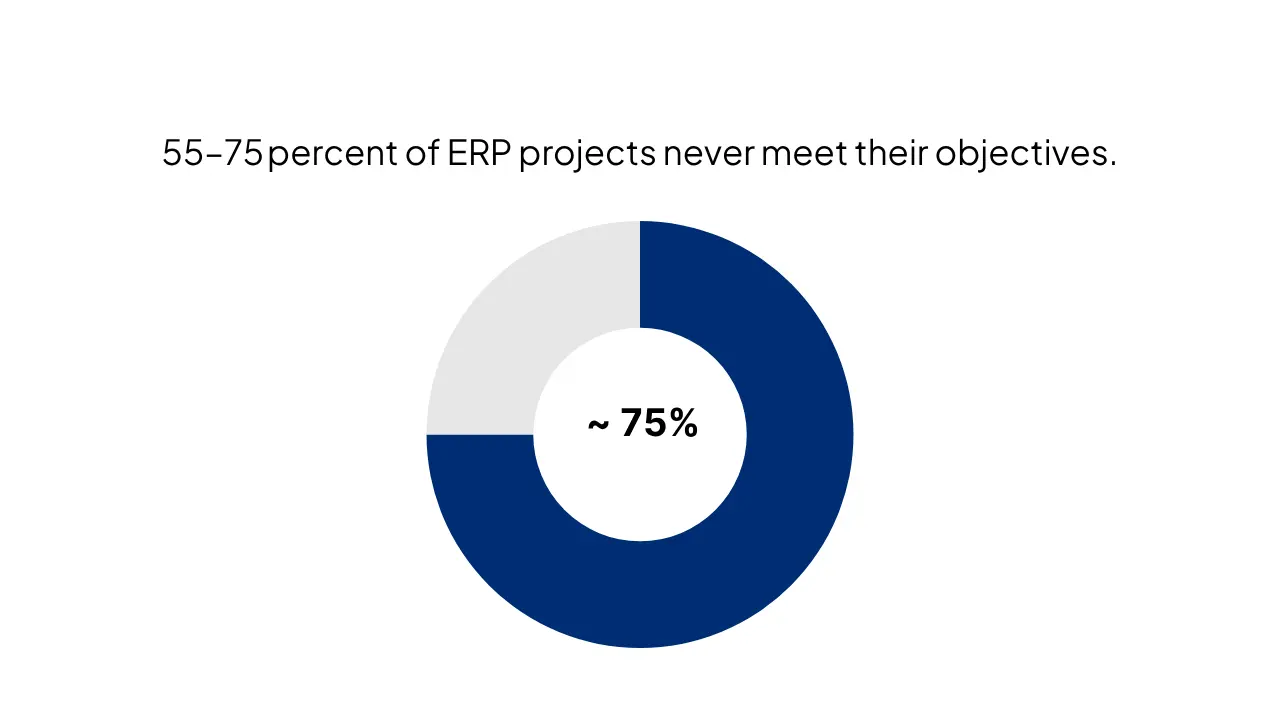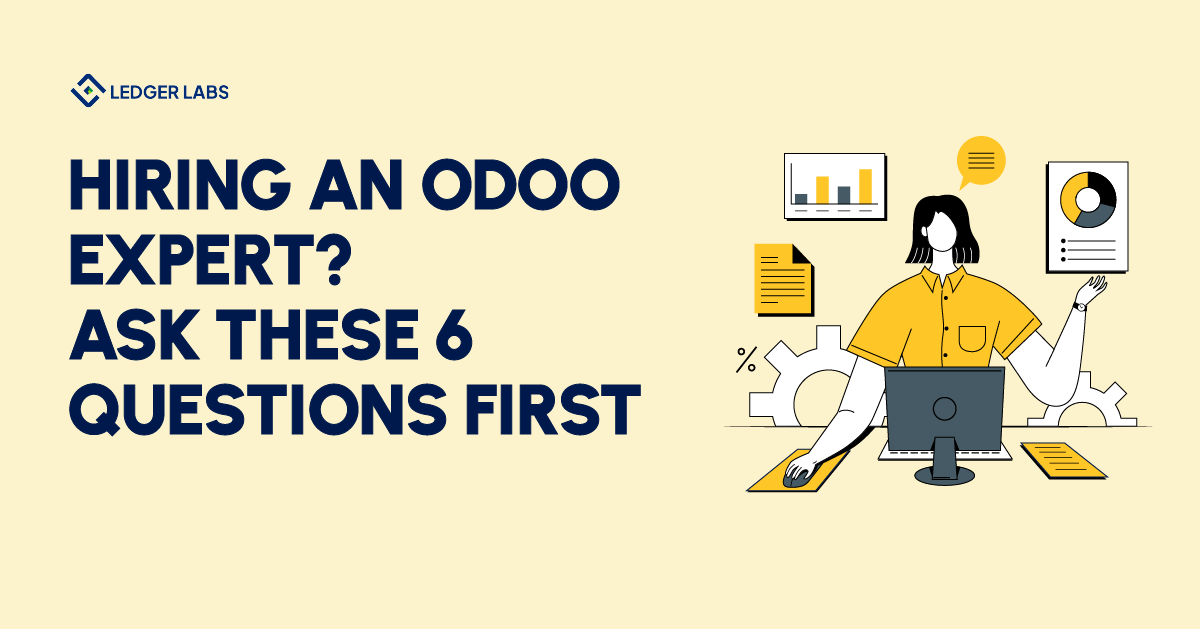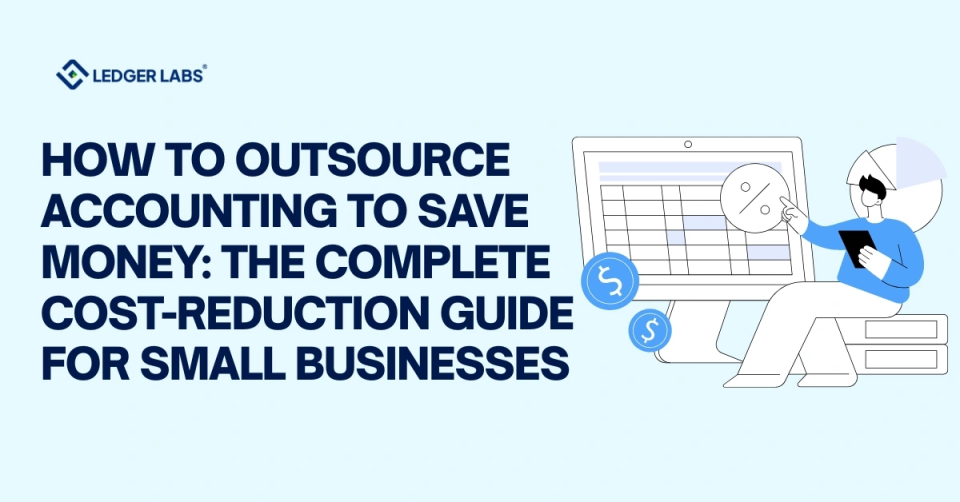Odoo can run your entire business. Or wreck it.
If you’re planning to hire an Odoo expert, there’s a hard truth you need to accept upfront: the wrong hire won’t just waste your money; they’ll break things you didn’t know could break.
Suddenly, your accounting can go off, your warehouse could panic, and your team can get stuck on calls trying to fix something that should’ve been done right the first time. And surprisingly, it happens all the time.
But not when you hire somebody who understands Odoo in and out and can help you with personalized solutions.
And if you’re also planning to hire an Odoo expert, you need to ask them some tough questions. Here’s a guide dedicated to six of the most important questions you should ask your potential Odoo expert before you partner with them.
- Odoo isn’t plug-and-play. Hiring the wrong expert leads to messy data, broken workflows, and painful rework. Ask smarter questions before you trust anyone with your core systems.
- A real Odoo expert understands advanced modules, version differences, and system-wide dependencies—not just the basics like CRM or Inventory setup.
- The best consultants know when to use native features, when to customize, and how to avoid unnecessary complexity that will hurt during upgrades.
- Go-live is the beginning. Post-launch support, bug fixes, and team training are critical. Without it, you’ll be stuck chasing someone to finish what they started.
- The right Odoo partner owns their mistakes, communicates clearly, and leaves behind a system your team can manage without constant outside help.
An Overview
- ERP implementations come with notoriously high failure rates. According to Gartner, 55–75 percent of ERP projects never meet their objectives.
- One survey found that 60 percent of organizations don’t even get measurable ROI.
- Odoo generated around $650 million in annual recurring revenue in 2024 and now supports over 110,000 companies

Odoo is a powerful tool. It’s flexible, open-source, and works for thousands of businesses.
But it’s also deceptively complicated. One wrong decision in setup or customization can echo for months.
The core problem is that most businesses don’t know how to screen an Odoo developer or consultant properly. They ask for portfolios, maybe check rates, and get blinded by talk of modules and integrations. But if you don’t ask the right questions, you won’t know what kind of expert you’re really hiring.
This isn’t a technical checklist.
Six questions, each one designed to tell you if the person in front of you actually understands Odoo, or is just playing with it on the surface. You don’t need a coder. You need someone who’s been through the fire and come out the other side still standing.
Let’s break it down.
Q1: How Deep Is Your Odoo Stack?
Anyone can set up Odoo for your business. Sales, CRM, and Inventory are the usual suspects, and every freelancer on Upwork will claim to have “hands-on experience” with them. But that’s not depth. That’s the default. If that’s all they’ve touched, you’re dealing with someone who hasn’t wrestled with Odoo in the real world.
Ask them straight:
- What modules have they worked on that aren’t part of a starter project?
- Have they implemented full-fledged Accounting flows, worked with Studio for custom app development, or connected Odoo with external tools like Shopify, WooCommerce, or Zoho CRM?
- Do they know how to structure a Manufacturing workflow with quality checks and barcode integrations?
- Have they built advanced reports using Odoo’s internal engine, not just hacked something together with Excel exports?
The point is simple. You don’t want a technician. You want a systems thinker. Someone who understands how Sales ties into Inventory, how Inventory feeds into Purchase, and how bad data upstream wrecks Accounting downstream.
Ask about version-specific experience too—Odoo 14, 16, 17—they’re not interchangeable. Every version has quirks, bugs, and new features. A real expert can walk you through what changed and why it matters.
Q2: Can You Show Me What You Broke And Fixed?
You’ll hear about success stories. Every candidate has them.
The clean launches, the happy clients, the “streamlined processes”.
But that’s not what you’re looking for. Ask instead: what’s something they broke—and how did they fix it? Because if they’ve been in the trenches, they’ve broken something.
Maybe a custom module crashed during an upgrade. Maybe a badly written automation started duplicating invoices. Maybe they ran a batch operation that wiped inventory values across the board.
Now listen closely to how they answer. Do they own the mistake? Do they describe how they diagnosed it, what they learned, and what safeguards they put in afterward? Or do they deflect, blame the client, or shrug it off as “part of the job”?
This question reveals character and their problem-solving ability.
Most importantly, it shows you whether they can stay calm and focused when things go sideways, because they will go sideways. You need someone who doesn’t flinch.
Q3. What’s Your Approach When Odoo Doesn’t Do What We Need?
This is where most projects derail.
Businesses think Odoo will “just work,” but sooner or later, you’ll hit a wall. A feature that’s too rigid. A workflow that doesn’t quite match your process. Something you assumed would be easy, like merging customer records or syncing taxes, suddenly turns into a rabbit hole.
Now the real test begins: does your expert try to force your process into Odoo’s defaults? Or do they pause, ask questions, and offer a smart workaround or custom module that makes sense?
Good Odoo experts don’t jump straight into development.
They look for solutions inside Odoo’s native capabilities first. Why?
This is because custom code creates long-term baggage. It needs to be maintained, tested, and sometimes rewritten during upgrades. But when custom work is necessary, the right expert builds it cleanly, with versioning, documentation, and rollback options.
Ask how they balance these decisions. Do they explore settings and Studio tweaks first? Do they document what they’re changing? Are they transparent about trade-offs? Anyone who says “we’ll just add a module” to everything doesn’t understand the cost of complexity.
Q4. How Do You Handle Version Upgrades?
This question weeds out the amateurs.
Odoo pushes major updates every year. And every year, companies get stuck because their developer built something that can’t be migrated easily. You don’t want to be one of them.
Ask what their upgrade process looks like. A seasoned Odoo pro will talk about running test migrations in a sandbox environment, comparing data schemas, and using Odoo’s official migration tools where possible. They’ll also explain how to handle custom modules: isolating them, testing them against the new core, and rewriting anything that breaks.
And they’ll talk timelines. No serious consultant promises a same-week upgrade for a live system with customizations. That’s reckless.
A real expert builds an upgrade plan—version by version—with backup strategies in place.
If you’re planning to stay with Odoo long-term, you need someone who thinks beyond the next sprint. Someone who builds systems you won’t have to rebuild every 12 months.
Q5. Will You Work With Our Team Or Replace Them?
Some developers are great at code, but terrible at people. They want total control. They avoid documentation, dodge accountability, and treat your staff like an inconvenience.
You can steer clear of such people.
Your Odoo expert should be a partner, not a gatekeeper. Ask them:
- How do they handle collaboration?
- Do they join your team’s Slack or set up shared tools like Notion or Jira?
- Do they train your staff or just hand off half-working features and vanish?
A good expert leaves behind clarity, not confusion. They document what they’ve built. They train the accounting team on how to use reconciliation properly. They explain workflows to your ops lead so they’re not stuck chasing support every week.
Ask about handovers. Ask what happens if they disappear.
If the answer sounds like “you’ll need to keep hiring me,” walk away. Your business shouldn’t be hostage to your developer.
Q6. What Happens After Go-Live?
This is where most businesses get blindsided. They think once the project is launched, they’re done. In reality, go-live is when the real work starts.
Bugs surface. Users find edge cases. Someone forgets how to generate a report that they were trained on two weeks ago.
- Ask what kind of post-launch support they offer.
- Do they include a grace period for fixes?
- Do they have hourly retainers for support?
- Will they help your team settle in over the first 30, 60, or 90 days?
- Also, ask how they handle ongoing changes.
- Can you ping them with a small request without starting a whole new contract?
- Or do they disappear until the next invoice?
The goal isn’t to lock someone in forever. It’s to build a smooth exit path. A safety net and a buffer while your internal team learns to fly solo.
Great experts don’t just build, they teach, guide, and step back when you’re ready.
The Cost of Not Asking
These six questions aren’t optional. They’re filters.
They cut through the smooth talk and flashy portfolios and show you what’s underneath. You’re not hiring a coder.
You’re hiring a problem-solver, a communicator, and someone who will either elevate your business or quietly blow it up from the inside.
Bad Odoo hires don’t usually crash and burn immediately. They erode confidence slowly. A broken workflow here, a tax report there, missing logs, silent bugs, no upgrade plan—until one day, your team refuses to touch the system, and your data’s a mess.
You don’t need a superhero. You need someone honest, experienced, and methodical. Someone who tells you when Odoo’s not the right tool for a job. Someone who documents what they build and teaches your team how to use it.
And if that’s exactly what you need, you need to book a call with us at Ledger Labs.
Ledger Labs has handled complex, high-stakes implementations across industries with zero shortcuts. We don’t guess. We solve. Hire us when failure isn’t an option.












